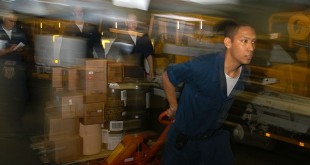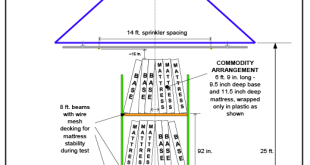
AFSA Applauds the Inclusion of Sprinkler Provision in New Tax Law
The American Fire Sprinkler Association (AFSA) applauds the United States Congress for passing and President Donald Trump for signing the Tax Cuts and Jobs Act (H.R. 1) recently, a comprehensive reform of the U.S. tax code. AFSA members are poised to benefit from several aspects of this monumental legislation, including particular language that directly affects the fire sprinkler industry – incentivizing business owners to retrofit their properties with fire sprinkler systems.
H.R. 1 provides this important incentive and allows the cost of sprinkler retrofits to be deducted as a Section 179 expense. This tax-policy change will allow numerous occupancies including businesses, restaurants, retail spaces and other establishments to protect their employees and customers.
Section 179 of the United States Internal Revenue Code (26 U.S.C. § 179), allows a taxpayer to elect to deduct the cost of certain types of property on their income taxes as an expense, rather than requiring the cost of the property to be capitalized and depreciated.
The final bill expands the definition of qualified real property eligible for Section 179 by expensing improvements to nonresidential real property after such property was first placed in service. In addition, new Section 179 language allows the following types of building improvements to be eligible for the immediate write-off:
- Roofs,
- Heating, ventilation, and air-conditioning property,
- Fire protection and alarm systems, and
- Security systems.
Fire sprinklers save lives, but cost considerations have prevented some property owners from making this important investment for too long. This new tax code signed into law December 22 will make it easier and more cost-effective to install these life-saving systems than ever before.
The dollar limit for expensing equipment purchases was also increased substantially. It would be $1 million starting in 2018. The phase-out of this deduction would begin for equipment purchases totaling more than $2.5 million.
Many of the changes reflected in the final bill were the result of the engagement of the AFSA and its members over the past decade.
“[Tax incentives to install fire sprinkler systems] have been many years in the making and is great news for all in the life safety profession,” said Theodore Wills Jr., president of Anchor Fire Protection in Perkiomenville, Pennsylvania and chairman of the AFSA Legislative Committee. “The people on the front lines of this battle, including former AFSA President Steve Muncy, deserve kudos for their unwavering support and persistence in bringing this important legislation to fruition.”
First introduced 14 years ago, The Fire Sprinkler Incentive Act (FSIA) sought to amend the 1986 Internal Revenue Code by classifying fire sprinkler retrofits as either a Section 179 depreciation deduction or as a 15-year property for purposes of depreciation. FSIA was endorsed and supported by dozens of industry groups, including AFSA, Congressional Fire Services Institute, International Association of Fire Chiefs, International Code Council, International Fire Marshals Association, National Association of State Fire Marshals, National Fallen Firefighters Foundation, and National Fire Protection Association, among others.
Although FSIA is not the same legislation included in the Tax Cuts and Jobs Act, its chief objective was similar – incentivize the installation of this life-saving technology. Under the new Tax Cuts and Jobs Act, fire sprinkler systems in 2018 will be classified under Section 179 and therefore provide property owners with greater incentives to install fire protection systems in their structures.
According to the National Fire Protection Association (NFPA) in 2016, there were 1,342,000 fires reported in the United States, leading to 3,390 civilian fire deaths; 14,650 civilian injuries; and $10.6 billion in property damage. When you include the indirect cost of fire, such as lost economic activity, the cost is closer to $108 billion annually. Studies by NFPA have concluded that buildings outfitted with sprinklers reduce the death rate per fire by 81 percent and decrease the property damage by up to 68 percent.
Founded in 1981, AFSA is the nation’s largest fire sprinkler association with more than 1,000 member companies worldwide, representing merit shop fire sprinkler contractors. It is dedicated to the educational advancement of its members and promotion of the use of automatic fire sprinkler systems. For more information, visit firesprinkler.org.

 Sprinkler Age A Publication of the American Fire Sprinkler Association
Sprinkler Age A Publication of the American Fire Sprinkler Association



